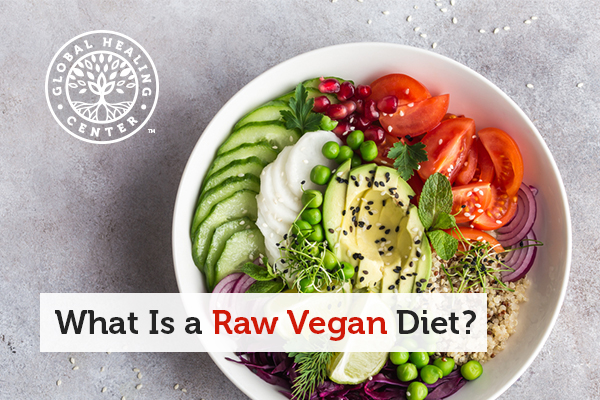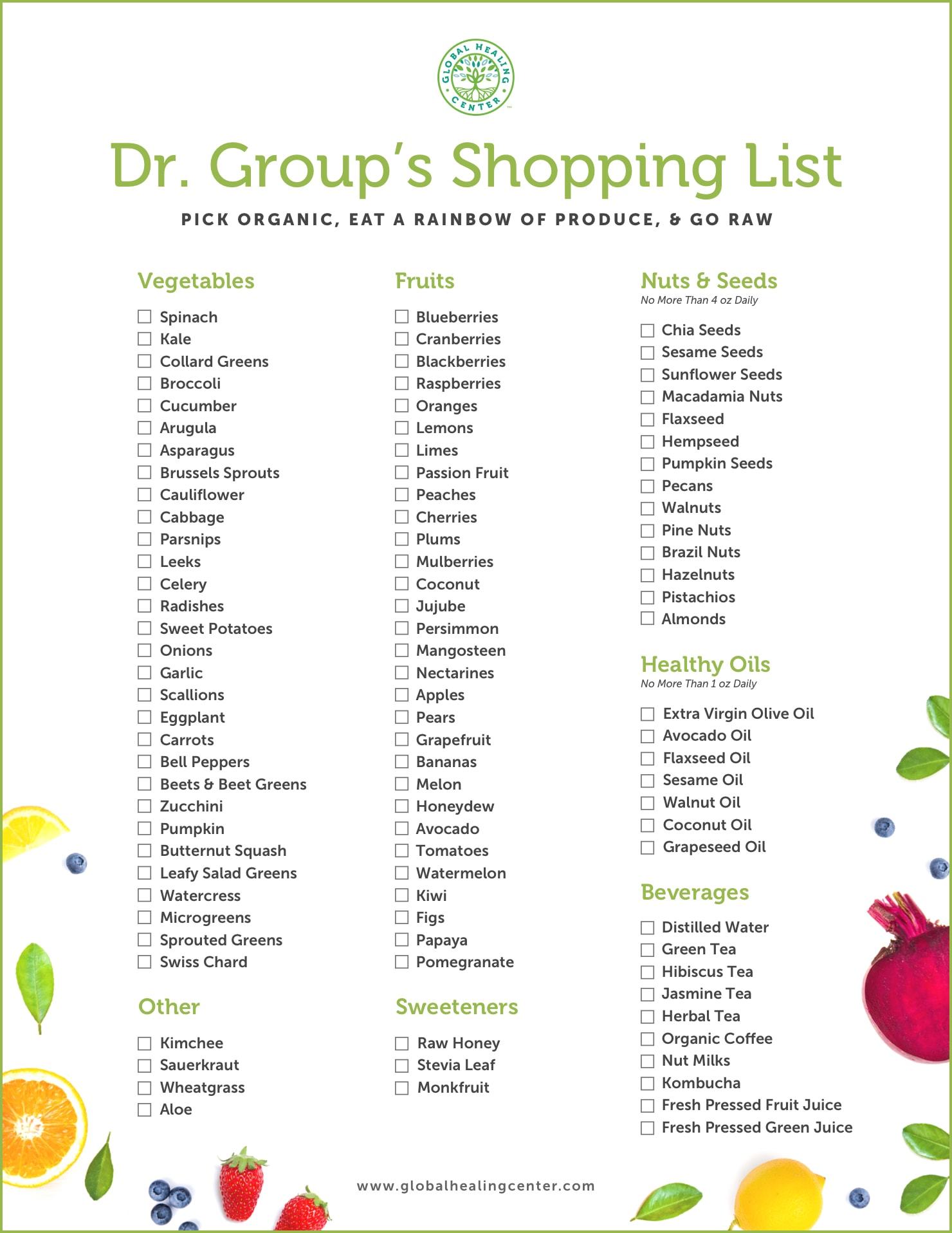
When developing a raw vegan diet, or any diet for that matter, you should focus on choosing foods that provide your body with the five most essential types of nutrients: carbohydrates, proteins, fats, minerals, and vitamins. Fortunately, these essential nutrients are present in a wide range of fruits, vegetables, herbs, and plants, so it is actually pretty easy to create a diet for yourself that is highly varied, palatable, and rich in nutritious value. Additionally, consuming these foods in raw form adds additional vitality and enzymes to your body because cooking removes many essential nutrients from foods. Organic, raw foods are also free from many of the preservatives that are added to foods that are intended for traditional recipe cooking.
Carbohydrates for Vegans
Carbohydrates are the first nutrient group to mention and raw, leafy green vegetables are the best source of complex carbohydrates for vegans. Complex carbohydrates take longer to break down and enter your blood stream. This allows the body to absorb them slowly and to use them more efficiently. Legumes are another excellent source of complex carbohydrates that also help maintain constant, healthy blood sugar levels.
Protein for Vegans
Although meat is usually thought to be the primary (or only) source of protein, incorporating protein into a raw vegan diet isn't nearly as difficult as you may think. Protein is much more abundant in plant material than people have been raised to believe. Our civilization and the advertising wizards who pull the strings have promoted a myth that a plant-based diet is unable to deliver all of the protein a person requires. This is not based on fact, but rather, on a desire to promote meat as a food source for economic gain. In actuality, protein is abundant in many types of vegetable sprouts. Broccoli sprouts, for instance, contain 35% protein, while pea sprouts contain 25% protein.
Many of the same leafy green vegetables from which we gain complex carbohydrates also provide us with protein. Broccoli and kale both consist of 45% protein, while spinach consists of 30 percent protein. Eating these vegetables this will also enrich your body with essential minerals, vitamins, and amino acids which we will examine more closely in a moment.
Nuts and seeds are two fabulous sources of protein for the raw vegan diet. Seeds make excellent, filling snacks between meals and are also a source for the essential fats required by the human body. Almonds are 12% protein per ounce. Pumpkin seeds consist of 21% protein per seed, while hemp seeds consist of 22% protein. A lesser known food source, but protein rich at the same time, is Spirulina, a type of algae. It is almost 68% protein — more than any land-based plant life. It also contains fatty acids and appears to have detoxification qualities as well. Another algae, Chlorella, is 60% protein and also possesses certain tissue repair properties.

Fats for Vegans
There's no harm in avoiding unhealthy saturated fats but certain types of healthy fats are necessary for a healthy raw vegan diet. These fats can be obtained from many of the nuts and seeds mentioned previously. You can also get them from organic, raw avocados, and milk substitutes made from nuts and oily seeds. Hemp milk and almond milk, for instance, are two of the healthiest dairy substitutes that anyone can consume, vegan or otherwise. Avocados should be consumed independently from sweet and starchy foods in order to prevent the body from craving excessive amounts of sugar.
Minerals for Vegans
It is also necessary to make sure that your raw vegan diet contains plenty of essential minerals. The most important of these minerals is calcium, followed by iron, magnesium, and a host of others. The following lists is a handy reference chart of plant sources for each type of mineral the body requires.
- Figs
- Brazil nuts
- Flax seed
- Sunflower seeds
- Sesame seeds
- Almonds
- Green leafy vegetables
- Broccoli
- Spinach
- Cereals
- Whole grain
- Watermelon
- Green leafy vegetables
- Legumes
- Beans
- Organic prune juice
- Bananas
- Whole grains
- Dried figs
- Legumes
- Beans
- Almonds
- Kiwi
- Tomatoes
- Grapefruit
- Cauliflower
- Raisins
- Bananas
- Dried apricots
- Spinach
- Corn
- Spinach
- Collard greens
- Wheat germ
- Sunflower seeds
- Lentils
- Legumes
- Pumpkin seeds
- Sea vegetables
Vitamins for Vegans
We also need to make sure that our raw vegan diet provides us with plenty of vitamins. The following list enumerates some of the most popular plant-based sources of vitamins that are completely appropriate for vegans.
- Broccoli
- Red bell peppers
- Apricots
- Kale
- Spinach
- Apricots
- Carrots
- Legumes
- Various nuts
- Sunflower seeds
- Wheat germ
- Watermelon
- Mushrooms
- Whole grains
- Beans
- Broccoli
- Spinach
- Broccoli
- Tomatoes
- Leafy green vegetables
- Legumes
- Peanuts
- Walnuts
- Legumes
- Watermelon
- Bananas
- Cabbage
- Tomatoes
- Bell peppers
- Grapefruit
- Broccoli
- Strawberries
- Sunlight
- Spinach
- Sunflower seeds
- Peanuts
- Leafy green vegetables
- Nuts
- Whole grains
- Spinach
- Tomatoes
- Parsley
- Kale
- Broccoli
- Brussels sprouts
- Cabbage
- Cauliflower
- Leafy green vegetables
- Green tea
†Results may vary. Information and statements made are for education purposes and are not intended to replace the advice of your doctor. If you have a severe medical condition or health concern, see your physician.








